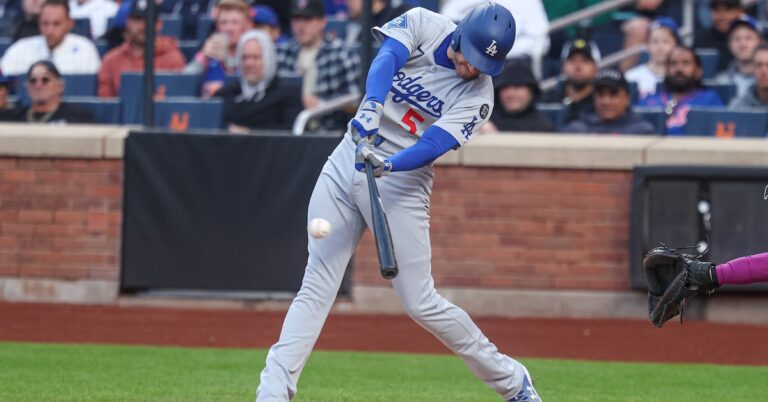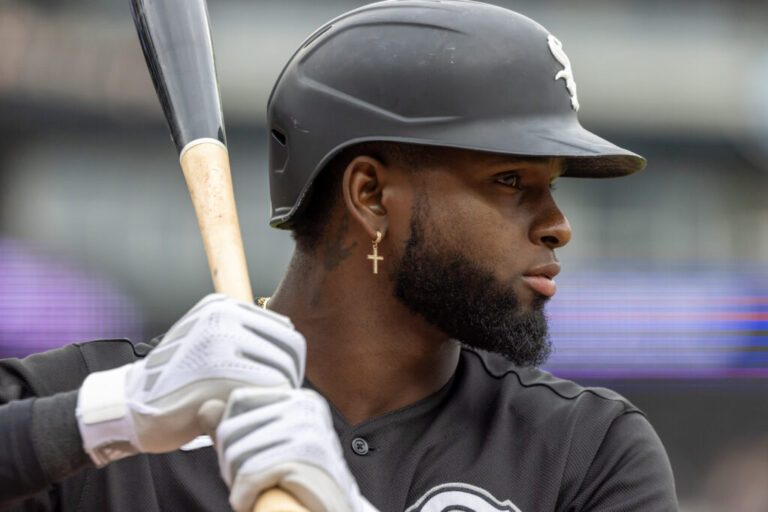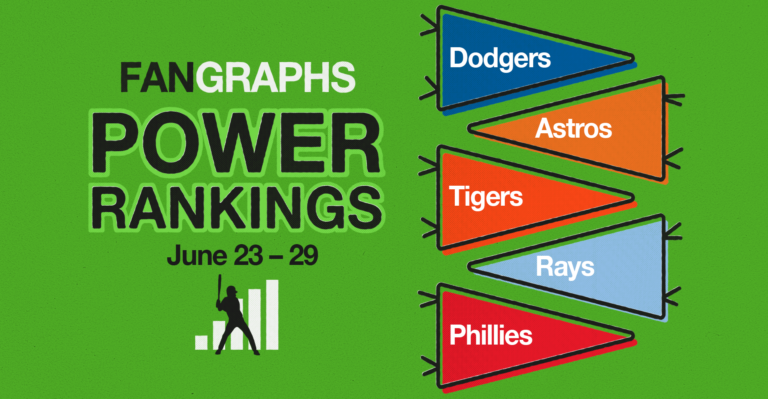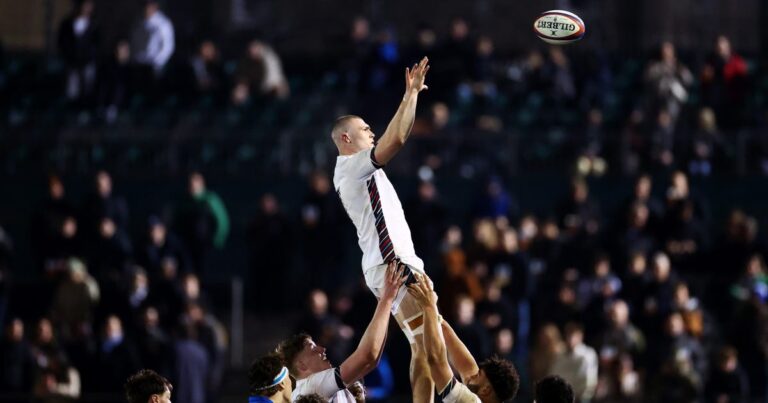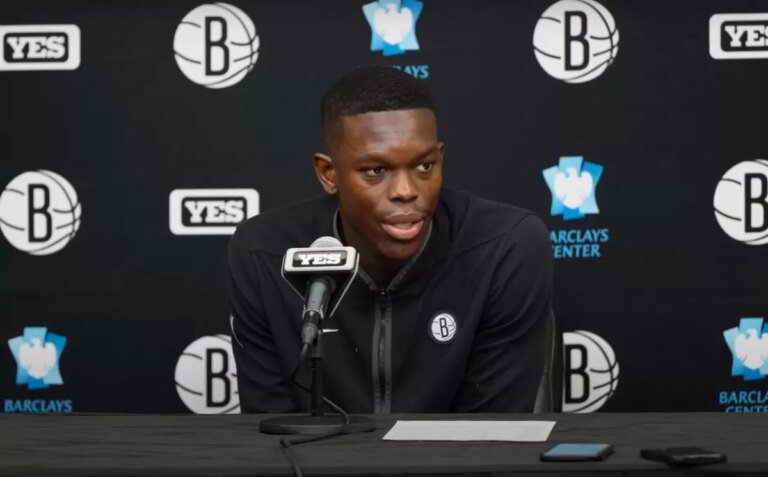

Joshua Kuroda-Grauer began his professional career this past summer on the heels of a stellar junior season at Rutgers University. The 21-year-old shortstop from New Brunswick, New Jersey, was named Big Ten Player of the Year after slashing a robust .428/.492/.590 with five home runs. Moreover, he swiped 24 bases, had more walks (23) than strikeouts (18), and played well defensively. The first player selected on the second day of the amateur draft — he went 75th overall — Kuroda-Grauer is No. 12 on our recently released 2025 Athletics Top Prospects list.
His pro debut was indicative of his skillset. Over 126 plate appearances across Low-A Stockton, High-A Lansing, and briefly Triple-A Las Vegas, the right-handed-hitting middle infielder slashed .324/.421/.343 with a 123 wRC+, and just as he’d done as a Scarlet Knight, he had more free passes (12) than strikeouts (9). As our lead prospect analyst Eric Longenhagen described in his writeup, “Kuroda-Grauer’s offensive profile is built around his advanced bat-to-ball chops…. [he] is short to the ball with average bat speed.”
Toward the end of the minor league season, Kuroda-Grauer discussed his draft experience, how he’s developed as a hitter, and the role model mindset that was ingrained in him by his two mothers.
———
David Laurila: You were drafted in the third round. What were your expectations?
Kuroda-Grauer: “I was told to expect anything from the second to the fourth, so I fell kind of where I thought I’d fall. I’m just really happy and fortunate to be with the A’s organization, especially with the group of guys that came in.”
Laurila: Were the A’s a surprise, or were they a team you knew was on you?
Kuroda-Grauer: “I definitely knew they were interested. When I went out to the combine in Phoenix, I had a great meeting with them. So I wasn’t too surprised, but a crazy thing about the draft is that you can meet with however many teams, but then you get picked up by one that never really talked to you.”
Laurila: You hadn’t been drafted out of high school, correct?
Kuroda-Grauer: “I had not. I really wasn’t even recruited to play college ball, just based on where I went to school. It wasn’t the biggest sports school or sports town in Jersey. So, I didn’t really talk to anyone.”
Laurila: How did you progress from being an overlooked high school player to a guy who put up the numbers you did in college?
Kuroda-Grauer: “I definitely have to give the credit to our hitting coach [at Rutgers], Michael Garza. He really helped me along with my swing, and just understanding the game of baseball. He helped me to become a better player in general. The weight room, getting stronger, playing three years at that level… I think you naturally adjust along the way. But again, the coaching that I got at Rutgers was amazing.”
Laurila: What type of adjustments did you make at the plate? For instance, if I looked at film of your hitting as a freshman and compared it to today, would I see basically the same setup, the same swing?
Kuroda-Grauer: “I think you’d see a much cleaner bad path. The swing is still rhythmic, still flowy — that’s kind of how I’ve always swung — but you’d see a more polished swing from the mechanical side. My best attribute as a hitter is probably my ball-to-ball skills. I just have an innate ability to put the ball in play, and I think cleaning up my bat path from freshman year to junior year really helped me to make good line drive contact.
“I definitely like to be a tablesetter for the big boys in the lineup behind me, get them some RBIs. I want to be the guy that scores 100 runs in a season. That’s what I see myself as.”
Laurila: Where are you in terms of exit velocities?
Kuroda-Grauer: “My exit velocities have jumped, which is a testament to the weight room and getting bigger and stronger, as well as cleaning up the mechanical stuff. I think the highest this year is something like 109 or 110 [mph]. I know I had a lot that were 100-plus, and that is the biggest thing for me, just to stay on the barrel. If you’re hitting the ball 100-plus every time you get up to the plate, you have a good chance of getting a hit.”
Laurila: Do you need to increase your walk rate [9.5% to go with a 7.1% strikeout rate in pro ball] in order to be a good tablesetter at the highest levels?
Kuroda-Grauer: “I think I have a good awareness of the strike zone — I don’t chase a lot — but especially in pro ball, that’s something that everyone, including myself, needs to work on. The zone is the zone and you don’t have to go outside of it. In college you might get a big zone here and there, but in pro ball, for the most part it’s a smaller zone. So, just get your pitch to hit. If it’s not there, just take it.”
Laurila: What about your defensive game? How do you feel you profile there?
Kuroda-Grauer: “Shortstop, 100%. As much work as I’ve put into hitting, I’ve put in the same amount of work, if not more, into my defense. I want to be able to stick at shortstop throughout my professional career. I’m always going to give my offense the nod because of my contact rates — I think I’ve always been a really good hitter — but I think my defense is up there as well.”
Laurila: Changing direction a bit, I’ve heard that you have strong leadership skills. I assume that’s something you take pride in.
Kuroda-Grauer: “Absolutely. One thing I heard coming into the draft was that professional baseball is real individualized, and not really that team aspect you get in college. As far as me being a leader, what I want to do the most is win, whether that’s at an affiliate or, hopefully, one day with the big league club. That’s how I see myself as a person, and as a player. I think that kind of attitude, that desire to just win, is infectious. Hopefully I’m able to bring some of that leadership with me to professional baseball.”
Laurila: I read a story in which you spoke about your two mothers and how they raised you to be accepting of others. The piece then mentioned the time you brought food to an unhoused woman outside your hotel. You’re quite the role model. Is it important to you that people know about things like that?
Kuroda-Grauer: “Yeah. I think that being a role model is important, especially for the youth and the people in my town. I’ve had a lot of Little Leaguers from Franklin Township, where I grew up, reach out and say they look up to me. That stuff means the world. And it’s not just on the baseball field, it’s off the field. It’s academics-wise and just being a good person overall. That’s the way I was raised by both of my parents, both of my mothers, to do the right thing. No matter who is watching, even if no one is watching, I try to do the right thing. I think that’s going to take me far.”
